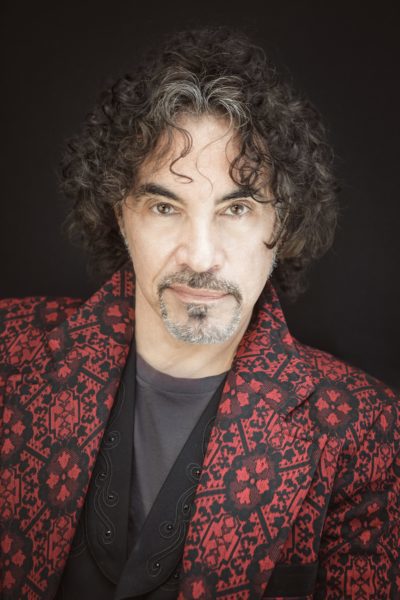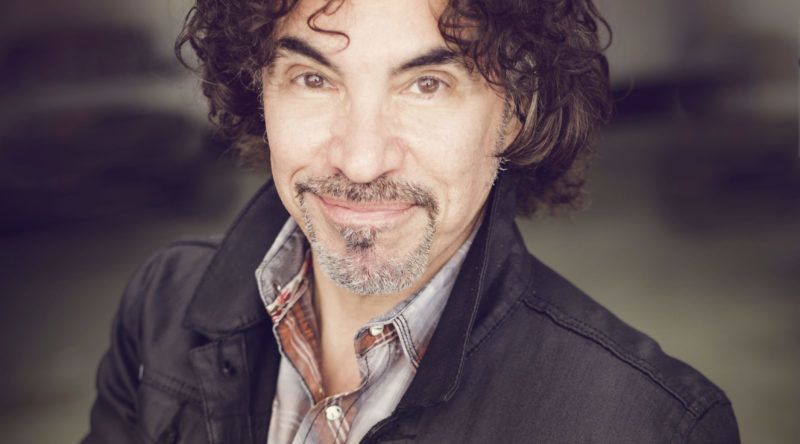INTERVIEW: John Oates enjoys a ‘Change of Seasons’

John Oates, one half of Hall & Oates, is a person deserving of the “Renaissance Man” moniker. He’s most beloved for his singing and guitar playing with Daryl Hall, but the multi-hyphenate continues to shake things up professionally. He’s done some race car driving and some solo work. He has founded a songwriters festival and now can add best-selling author to his résumé.
Oates’ memoir, co-written with Chris Epting, is called Change of Seasons. The book details the musician’s upbringing and influences, how he fared during the 1960s and 1970s, and his success as one half of the most successful musical duo in history. It’s a revealing account, one that mixes the personal with the professional.
Oates, a Rock ‘N’ Roll Hall of Fame inductee, is no stranger to Hollywood Soapbox. He spoke with the publication a few years ago, and now he opens up about his time living in Philadelphia, his love of race car driving and taking things with a grain of salt. Here’s what he had to say:
On how the book project came to be …
I had done a series of interviews with a fellow named Chris Epting over the last few years. He was a fan of my solo work, and in the course of doing the interviews, we just had a good rapport. And he seemed to really get me, and one day, he said, ‘Have you considered writing a book? You’ve got so many interesting stories, and you’ve led a very interesting life.’ I said, ‘Well, I hadn’t thought about it.’ He goes, ‘Well, if you ever want to do it, I’d love to help you.’ And that’s how it started, and we began. I had a series of journals that I had kept for the decade of the ’70s — 13 hand-written volumes — and made copies of them and sent them to him. He started going through them, and he started laying out a plan. And we began writing, and he’s a great researcher. He helped me with the whole book-editing process, so it was really a great experience.
On playing accordion as a child …
I grew up in a small town — North Wales, Pennsylvania — and the only teacher in that town was an accordion teacher. So my mom, because I sang at a very early age as a baby really, I guess she assumed I had some musical talent, so she signed me up for accordion lessons. I didn’t really want them, but she signed me up. And I realized I wasn’t interested in it, but I wanted to play guitar. And of a friend of mine’s father had built a handmade guitar, and he gave it to me. And I tried it, and then I said, ‘I’ll take guitar lessons.’ That’s how it started. I mean, I’ve been playing guitar since I’ve been 6 years old.
On growing up as a teenager in the Philadelphia area …
Well, if you look at the very beginning of the book, my dedication is to the hometowns where I lived because every one of them has affected me musically and personally in a very profound way, so Philadelphia obviously is one of them. Being there as a teenager, and the things that happened to you as a teenager, they stick with you for the rest of your life. So the sound of Philadelphia, the music that emanated from that city, the culture, the things that I was able to learn and experience being there at a very unique time in the mid- to late-‘60s, where it was a hotbed of R&B and street corner music and folk music, just everything all happening at the same time. It was just this incredibly golden era of music in that city, and I was there to take it all in. So really it kind of colored everything and affected everything I’ve done ever since.
On being born after World War II and coming to age in the 1960s …
I felt like I was born at the right time. I was born right after World War II, and I was born before rock ‘n’ roll was invented. So rock ‘n’ roll was invented in the early ’50s and began to become a thing. I was already aware of music. I could understand it. I could hear it. I was musically inclined, so I feel like my life parallels the birth of rock ‘n’ roll all the way through. And that’s a very unique thing to be able to say because American rock ‘n’ roll really has changed the course of the world, and so I feel like my life in a way parallels that. I was able to understand and see this phenomenon from its very earliest moments. I saw Bill Haley and the Comets in 1953, and I was a little kid. It blew my mind. I really feel like I’m part of that legacy in a way.
On his experiences during a time of war and activism …
I was in college during the ’60s when the activism and the protests were in full swing. My best friend from high school was killed in Vietnam. I had numerous friends from high school who were wounded in Vietnam. It was very real — very, very real to me. And I didn’t believe in it. I thought it was an unjust war. I didn’t want to be part of it. I was on the radical fringes of that ’60s college society, and I was not interested in it at all.
On his fascination with motor racing …
I was fascinated with the European aspect of motor racing before the war and after the war. I started becoming a bit of a motor-racing historian. I read all about the earliest days, and I just was fascinated with it. And I had a friend, a kid who moved to my junior high school from England, and his father had raced in England. He told me all these stories, because motor racing is so big in England, and I began to just study it. … It was just a thing that captured my imagination, and when I got a little bit older and had some money and time, I began to race go-karts out on Long Island. And eventually it led to racing amateur sports car racing, and eventually I raced professionally.
On how he joined up with Hall to form Hall & Oates …
When we got together, Daryl and I had known each other for about three or four years before we actually got together, and we were friends. We shared apartments. We bummed around together. He was playing in different bands, doing some studio work. I was playing in coffeehouses and playing blues and folk music, and we just basically were both frustrated with the fact that nothing was really happening in the things that we were doing individually. And we kind of got together, like almost as an alternative, and we said, ‘You know what, you’ve got some songs. I’ve got some songs. Why don’t we just go play together. And you sing a song, and I’ll accompany you. I’ll sing a song. You’ll accompany me.’ That’s kind of how we started. It wasn’t like this, hey, let’s be a duo that’s going to set the world on fire. We just basically took it one step at a time, and one thing led to another. And eventually we got more serious about it, and then we tried to pursue a record contract. And that’s how it started.
On keeping his biography free from too much negativity …
Everything I said was true. I didn’t elaborate. I didn’t sensationalize anything. In fact, I under-sensationalized many, many things in this book. There were things that I could have gone a lot deeper and a lot more personal. … I tried to be conscious of the fact that people make mistakes, myself included, and that no one is perfect. I didn’t want to crucify and attack people in a vindictive way because, in the end, my life turned out very good. Where I’m sitting right now is a very good place to be, so one way or another, even the negative things that happened to me, were all part and parcel of something that ended up pretty darn good.
By John Soltes / Publisher / John@HollywoodSoapbox.com
Change of Seasons, by John Oates, is now available. Hall & Oates is currently touring the country. Click here for more information and tickets. Click here for Hollywood Soapbox’s previous interview with John Oates.

